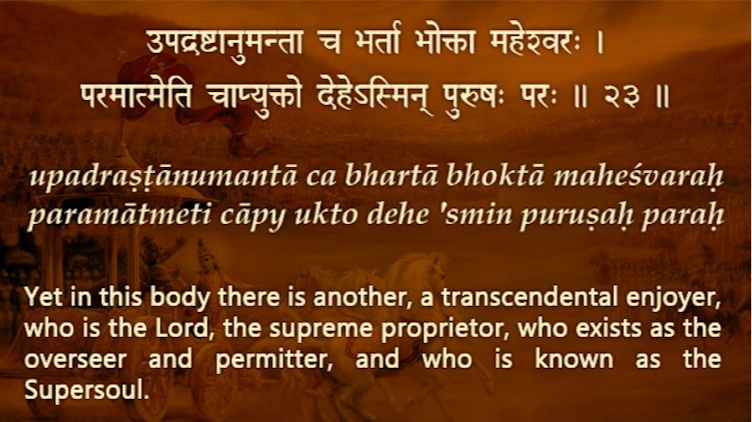God Is The Supreme Controller, But Not The Sole Controller
By Chaitanya Charan Das | Nov 18, 2018

Some people say, “Everything that happens is God’s will.” They may think that such a statement conveys their unquestioning faith, but does it really? Or does it raise disturbing questions that detract from God’s goodness? For example, when tyrants murder the innocent, are such murders God’s will? More specifically, in the Mahabharata, when the demonic Kauravas attempted to disrobe Draupadi, was that Krishna’s will?
To address such questions, let’s understand the subtle but significant difference between God’s sanction and God’s intention. Everything that happens is sanctioned by God, but it is not necessarily desired by him. Krishna’s will governs the scope of our actions, but not all our specific actions themselves. Just as the wind travels freely, but within the sky, similarly, all living beings function freely, but within the perimeter of Krishna’s will (Bhagavad-gita 09.06). He is the overseer and the permitter of all actions – not necessarily the desirer of those actions(13.23).
If people with positive past karma can get away despite doing terrible things, then how is God in control? They can’t get away – they only appear to get away for the duration that their past karma gives them a large area of control. Once that duration ends, the reactions to their misdeeds will hit them, as happened to Duryodhana through the Kurukshetra war.
That Draupadi be disrobed was not Krishna’s desire; it was the Kauravas’ desire, and Krishna sanctioned it. Additionally, through this harrowing incident, Krishna demonstrated Draupadi’s extraordinary adherence to dharma and devotion.
By understanding that God is not the sole controller, we can avoid blaming him when bad things happen. By understanding that he is the supreme controller, we can stay devoted to him even through adversities, being confident that he will help us cross over all obstacles if we remain conscious of him (18.58).
Think it over:
- Are people’s misdeeds God’s will?
- Can people with positive past karma get away despite doing terrible things?
- How can a proper understanding of God’s controllership stabilize our devotion to him?















